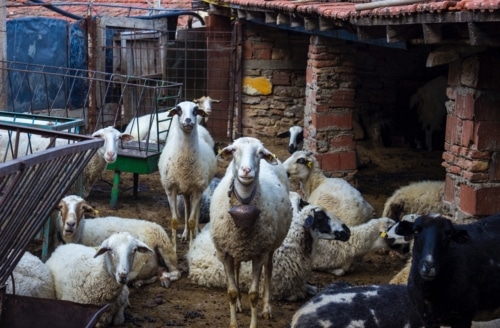I have little experience with domesticated sheep other than watching small flocks walk down the road while I was stationed in Sicily. But I have heard that they are not the brightest bulbs in the animal kingdom and depend on the shepherd to lead them to food and water and protect them from predators.
Psalm 23 is a familiar and loved psalm, describing the Lord’s love for his people, illustrated by the provision of a shepherd for his sheep. In the tenth chapter of John, Jesus identified himself as that shepherd and his followers as the sheep he cared for. And that is an apt example. We are dependent on him for our spiritual nourishment and protection.
Which Shepherd Do You Follow?
The gatekeeper opens the gate for him, and the sheep listen to his voice. He calls his own sheep by name and leads them out. When he has brought out all his own, he goes on ahead of them, and his sheep follow him because they know his voice.
John 10:3-4 NIV
If my understanding of sheepherding in New Testament Palestine, and this passage, is correct, the local area shepherds would sometimes bring their flocks into a communal holding pen at night for safeguarding. In the morning, each one would go to the gate of the enclosure and call out his sheep, who would respond only to him. He would then lead his sheep out for the day. For each sheep pen, multiple shepherds could call sheep and lead them in many directions, but the sheep knew who to follow.
But this account is not just about shepherds and what they do. Look at what Jesus says here about the sheep. His sheep recognize and listen to his voice, and they follow him where he leads. If I follow him, then I am his sheep. But if I follow another, then I belong to them.
So that raises a question. Which shepherd’s voice do we hear and follow? Many voices are calling to us today. Do you follow Jesus’ voice? Or some other shepherd? Be sure you have chosen the right shepherd.

